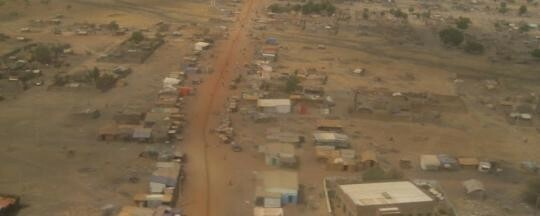Citizens in Unity State have criticized the parties to the peace agreement for failing to implement security arrangements and establish a permanent constitution before the elections in December 2024.
Speaking to Radio Tamazuj, several residents of Unity State threatened to boycott the upcoming general elections due to inadequate security reforms. They point to numerous security incidents, such as attacks on convoys, as evidence of the state’s instability, questioning the feasibility of holding elections under such circumstances.
Stephen Gatluak, a Bentiu resident, emphasized that the decision to boycott the election remains viable until the government addresses security concerns. He warned against repeating the conflicts of 2013 and 2016, underscoring the need for comprehensive security reforms to prevent further unrest.
“Insecurity poses a significant obstacle to holding elections,” Gatluak stated. “Security reforms must be enacted promptly to ensure a safe electoral environment. Without adequate security measures, elections risk being marred by conflict.”
Chuol Wiek, a local traditional leader, emphasized the necessity of implementing security arrangements before discussing elections. He stated, “Elections give hope for people to return to their homes where they are from. My concern is not with elections themselves but with the lack of prior implementation of necessary arrangements.”
He further remarked, “The peace agreement, crafted by the international community in 2018, was designed for swift implementation, which is not happening. Leaders are progressing at a slow pace.”
Dr. Riak Koang, a member of civil society in Unity State, echoed the importance of addressing people’s concerns regarding the upcoming general election in December 2024.
“Elections without a permanent constitution and the deployment of unified forces risk plunging South Sudan back into the conflicts of 2013 and 2016,” Riak said.
He added, “As civil society, we urge the agreement parties to prioritize implementing the remaining chapters, including establishing a permanent constitution, deploying unified forces, and facilitating the return of refugees and IDPs from camps in Malakal, Bor, Wau, Juba POC, and Bentiu before December.”
Riak highlighted the pressing need for infrastructure development, stating, “The people of Unity State require access to good roads before the upcoming general elections in December. Clearing roads before the rainy season is essential for our community.”
“Many citizens are questioning the country’s readiness for elections due to the sluggish pace of agreement implementation. I witnessed the 2010 election during Taban Deng Gai and Nyajany Kume [Angelina Teny] in Bentiu, where people were killed and others coerced into supporting the opposition,” recounted a Bentiu resident who wished to remain anonymous.
Santino Kondial echoed these concerns, acknowledging the importance of holding elections at the end of the transitional period but emphasizing the need to prioritize the resettlement and reintegration of IDPs and refugees still abroad. “I doubt the success of this election. While it seems likely to occur, there’s little indication that people will actually participate,” he remarked.
Kondial further stressed, “Elections should empower citizens to choose their leaders, but many are disillusioned with the transitional leadership.”
James Gatdet emphasized the necessity of a permanent constitution and the deployment of unified forces to ensure peaceful elections. “Without these crucial elements, the elections could lead to conflict, jeopardizing peace across South Sudan’s ten states and three administrative areas,” Gatdet warned.
He expressed concern over unequal political campaigning in Unity State, stating, “The fact that only one party is holding rallies while others are not indicates potential conflict stemming from the elections.”
Meanwhile, Nyaruai Both, another resident of the camp, opposed the idea of boycotting the elections. She believes that participating in the elections will empower South Sudanese to make informed decisions to end the conflict and propel the country forward.
Expressing her concerns, Nyaruai stated, “We are concerned about the general elections in December 2024 because the security arrangements have remained unimplemented since 2020. Nonetheless, I agree with those advocating for voting as a means to achieve peace. I am prepared to vote and return to my original home in Panyijar County.”
Displaced individuals in Bentiu expressed gratitude towards humanitarian aid, particularly food assistance, and commended the World Food Programme (WFP) for reinstating food distribution in the Bentiu IDP camp in January 2023.
Nyajal Duop, a resident of Leer town and recent returnee from Sudan, shared her reluctance regarding elections until security arrangements and a permanent constitution are in place.
“How can we be expected to participate in elections when basic security and constitutional prerequisites have not been met?” she questioned. “Running for office or voting becomes meaningless when people are suffering from hunger and insecurity in Leer County.”
Duop criticized the government’s failure to provide essential support since South Sudan’s independence in July 2011. “We have been seeking government assistance for our basic needs, but there has been no support forthcoming,” she lamented.
The Roadmap extending the Transitional Period specifies that general elections will be held in December 2024.
The United States, United Kingdom and Norway on Tuesday reaffirmed their call for South Sudan’s leaders to urgently take steps necessary to ensure genuine and peaceful elections in December.




